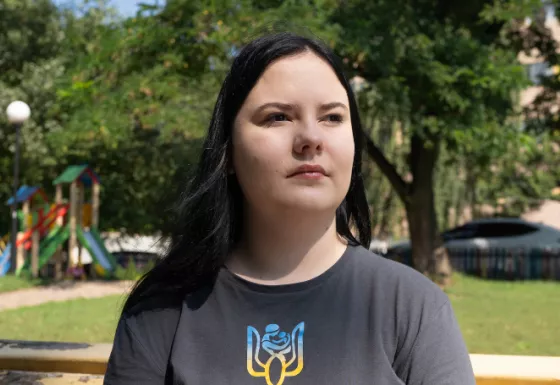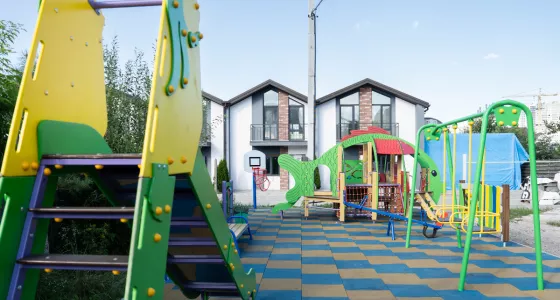"There was no choice of specialties either, and that was something I didn’t like. This only reinforced my feeling that I didn’t want to go there.
For my brother, it happened [transferred to Russia] because of a neighbouring pro Russia foster family. I think Russian propaganda was involved.
Our foster family was close with them, especially the kids. Information spread that foster children were going to a summer camp in Russia. And so, all our neighbours’ children, including my brother and a foster brother, were sent to the camp.
“How do people communicate if there’s no mobile connection? They just went to the neighbour, told him, and he went to another neighbour.... And in this way, the information spread throughout the entire community.
My brother told me that one of his teachers went with them, along with some military personnel and military vehicles. He said there were a lot of buses. So, it wasn’t a one-time thing, it was massive and planned long in advance.
We left on different days. He left on August 27 or 28, I left on the 31st, and the very next day I was already in line as a student.
Three months after starting my studies in Russia, I was kicked out of the dormitory because they tried to force me to get a Russian passport. They told me that as an orphan, I was entitled to housing, permanent financial support from the community, and a wonderful life in Russia.
This information came from different people. It could be the deputy director, a teacher, a curator, a librarian, or the dormitory staff. I kept hearing it over and over, but I always replied, ‘thank you, but I’m not interested right now.’
I still wanted to return to Ukraine if possible. I also told them that I am a Ukrainian child, and my ‘deprived of parental care’ status applies only within Ukraine. They told me that it no longer worked that way, but I stuck to my answer.
During one geography lesson, while explaining the topic about countries and territories. She suddenly started saying that if Russia hadn’t attacked, Ukraine would have attacked them. She claimed Ukraine had already been preparing for an offensive and was ready to fight, but Russia got ahead of them."


